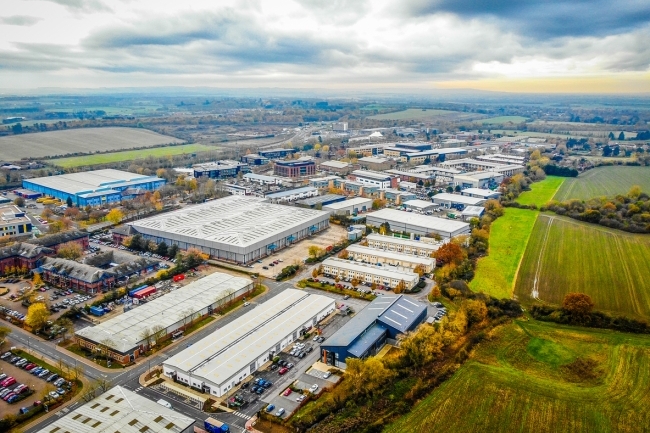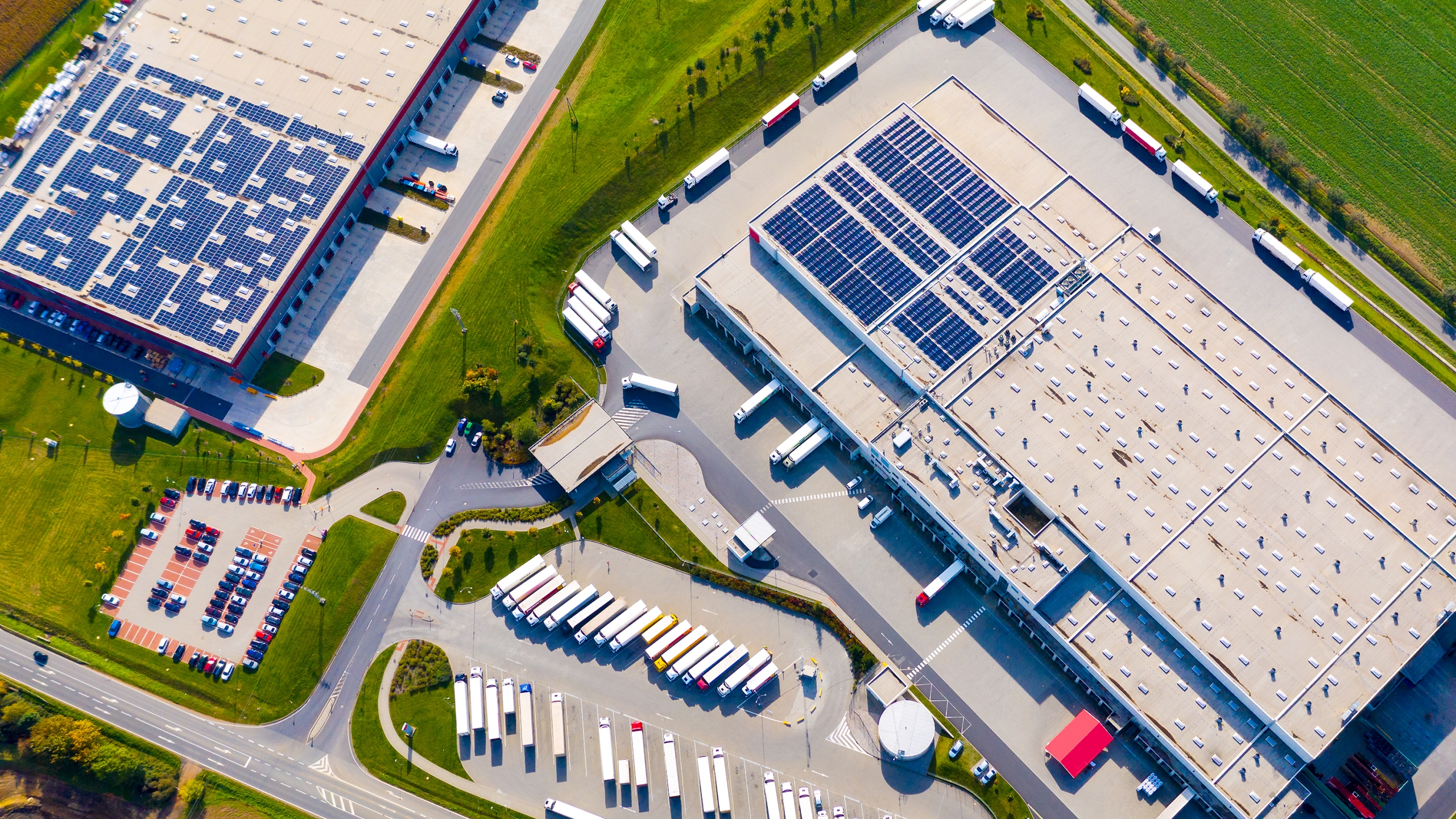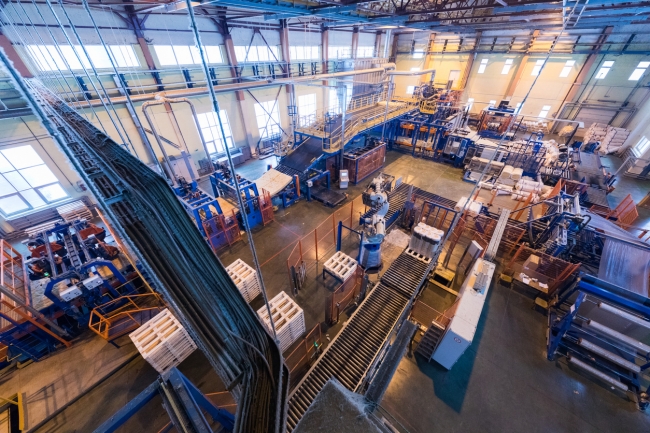8 minute read - 23rd June 2025
New Industrial Strategy published – Government plans to unlock billions in investment and support new job creation
The government has released its Modern Industrial Strategy white paper, designed to serve as a blueprint for the next decade, supporting manufacturing, engineering and industrial growth. The government says it intends to unlock billions of investment, support the creation of new jobs–claiming it could be responsible for 1.1 million new jobs–and mark a new era of collaboration between government and high-growth industries.
It has also underlined its intention to make Britain the best place to do business by tackling high electricity prices and long waits for grid connections, both of which are significant barriers for UK industry. More than 7,000 British businesses are set to see their electricity bills cut by up to 25% from 2027. British manufacturers currently pay some of the highest electricity prices in the developed world, while businesses looking to expand or modernise have faced delays when it comes to connecting to the grid. The government stated that for too long, these challenges have hindered growth and made it more difficult for British firms to compete.
Read the full Industrial Strategy document here

Picture: Getty/iStock
Modern Industrial Strategy at a glance
The industrial strategy white paper 2025 sets out the following plans:
• Reduce electricity costs by up to 25% from 2027 for electricity-intensive manufacturers in growth sectors and foundational industries in their supply chain, bringing costs more closely in line with other major economies in Europe.
• Unlocking billions in finance for innovative businesses, especially for SMEs, by increasing British Business Bank financial capacity to £25.6bn, crowding in tens of billions of pounds more in private capital. This includes an additional £4bn for Industrial Strategy sectors.
• Upskilling the nation with an extra £1.2bn each year for skills by 2028-29, and delivering more opportunities to learn and earn in high-growth sectors, including new short courses in relevant skills funded by the Growth and Skills Levy and skills packages targeted at defence, digital and engineering.
• Reducing regulatory burdens by cutting the administrative costs of regulation for business by 25% and reducing the number of regulators.
• Supporting 5,500 more SMEs to adopt new technology through the Made Smarter programme while centralising government support in one place through the Business Growth Service.
• Boosting R&D spending to £22.6bn per year by 2029-30 to drive innovation across the IS-8, with more than £2bn for AI over the Spending Review, and £2.8bn for advanced manufacturing over the next ten years. This will leverage billions more from private investors. Regulatory changes will further clear the path for fast-growing industries and innovative products such as biotechnology, AI, and autonomous vehicles.
• Attracting elite global talent to key sectors, via visa and migration reforms and the new Global Talent Taskforce.
• Deepening economic and industrial collaboration with partners, building on the Industrial Strategy Partnership with Japan and recent deals with the US, India, and the EU.
• Reducing planning timelines and cutting costs for developers, by hiring more planners, streamlining pre-application requirements and combining environmental obligations, removing burdens on businesses as well as accelerating house building.
• Revolutionising public procurement and reducing barriers for new entrants and SMEs to bolster domestic competitiveness.
• Supporting the UK’s city regions and clusters by increasing the supply of investible sites through a new £600m Strategic Sites Accelerator, enhanced regional support from the Office for Investment, National Wealth Fund, and British Business Bank, and more.
The plan focuses on eight sectors where the UK is already strong and has potential for faster growth: advanced manufacturing, clean energy industries, creative industries, defence, digital and technology, financial services, life sciences, and professional and business services. Each growth sector has a bespoke 10-year plan that will attract investment, enable growth and create high-quality, well-paid jobs.
From 2027, the new British Industrial Competitiveness Scheme will reduce electricity costs by up to £40 per megawatt hour for over 7,000 electricity-intensive businesses in manufacturing sectors like automotive, aerospace and chemicals. The government said these firms, which support over 300,000 skilled jobs, will be exempt from paying levies such as the Renewables Obligation, Feed-in Tariffs and the Capacity Market. Eligibility and further details on the exemptions will be determined following consultation, which will be launched shortly.

Picture: Getty/iStock
The government is also increasing support for the most energy-intensive firms, such as steel, chemicals and glass, by covering a greater portion of the electricity network charges they usually incur through the British Industry Supercharger. These businesses currently get a 60% discount on those charges, but from 2026, that will increase to 90%. This will help around 500 eligible companies in sectors such as steel, ceramics and glass to reduce their costs, protect jobs, and will be delivered at no additional cost to the taxpayer. These reforms complement the government’s long-term mission for clean power, which is the only way to bring down bills for good by ending the UK’s dependency on volatile fossil fuel markets.
To ensure businesses can grow and hire without delay, the government will also deliver a new Connections Accelerator Service to streamline grid access for major investment projects, including prioritising those that create high-quality jobs and deliver significant economic benefits. The intention is that government will work closely with the energy sector, local authorities, Welsh and Scottish Governments, trade unions, and industry to design this service, which we expect to begin operating at the end of 2025. New powers in the Planning and Infrastructure Bill, currently before parliament, could also allow the government to reserve grid capacity for strategically important projects, thereby reducing waiting times and unlocking growth in key sectors.

Picture: Getty/iStock
Never miss the latest manufacturing news by signing up to our newsletter here
The Supercharger and British Industrial Competitiveness Scheme will be funded through reforms to the energy system. The government is reducing costs within the system to free up funding without raising household bills or taxes. It also intends to utilise additional funds from the strengthening of UK carbon pricing, including those resulting from linking with the EU carbon market. The government added that there is an intention to link emissions trading systems, as part of a new agreement with the European Union. Without an agreement to do this, British industry would have to pay the EU’s carbon tax. The intention is to link the UK’s carbon pricing system with the EU’s, to ensure that money stays in the UK, which allows the government to support British companies and British jobs through these schemes.
Prime Minister Keir Starmer, said: “This Industrial Strategy marks a turning point for Britain’s economy and a clear break from the short-termism and sticking plasters of the past. In an era of global economic instability, it delivers the long-term certainty and direction British businesses need to invest, innovate and create good jobs that put more money in people’s pockets as part of the plan for change. This is how we power Britain’s future – by backing the sectors where we lead, removing the barriers that hold us back, and setting out a clear path to build a stronger economy that works for working people. Our message is clear – Britain is back and open for business.”
Business and Trade Secretary, Jonathan Reynolds, added: “We’ve said from day one Britain is back in business under this government, and the £100 billion of investment we’ve secured in the past year shows our Plan for Change is already delivering for working people. Our Modern Industrial Strategy will ensure the UK is the best country to invest and do business, delivering economic growth that puts more money in people’s pockets and pays for our NHS, schools and military.
“Not only does this Strategy prioritise investment to attract billions for new business sites, cutting-edge research, and better transport links, it will also make our industrial electricity prices more competitive. Tackling energy costs and fixing skills has been the single biggest ask of us from businesses and the greatest challenge they’ve faced – this government has listened, and now we’re taking the bold action needed. Government and business working hand in hand to make working people better off is what this government promised and what we will deliver.”

Picture: Getty/iStock
Stephen Phipson, CEO at Make UK, said: “Today is one of the most important days for British industry in a generation. In launching the modern industrial strategy white paper, Jonathan Reynolds has demonstrated the government’s commitment to honour its promises and tackle the major structural problems that have blighted UK manufacturing for so long, and we congratulate him for doing so. Make UK has led the campaign for a new industrial strategy for many years, highlighting the three major challenges that were diminishing our competitiveness, hampering growth and frustrating productivity gains: a skills crisis, crippling energy costs and an inability to access capital for new British innovators.
“The government has listened and the Secretary of State has acted decisively with a joined-up strategy which reflects a wider commitment from the Prime Minister and Cabinet alike. The strategy announced today sets out comprehensive and well-funded plans to address all three of these structural failings. Clearly there is much to do as we move towards implementation but this will send a message across the Country and around the world that Britain is back in business.”
Five sector plans
Five sector plans have also been published at the same time as the industrial strategy white paper was released and are summarised below:
• Advanced Manufacturing – Backing the Advanced Manufacturing sector with up to £4.3bn in funding, including up to £2.8bn in R&D over the next five years, with the aim of anchoring supply chains in the UK – from increasing vehicle production to 1.35 million, to leading the next generation of technologies for zero emission flight.
• Clean Energy Industries – Doubling investment in clean energy industries by 2035, with Great British Energy helping to build the clean power revolution in Britain with a further £700m in clean energy supply chains, taking the total funding for the Great British Energy Supply Chain fund to £1bn.
• Creative Industries – Maximising the value of the creative industries through a £380m boost for film and TV, video games, advertising and marketing, music, and visual and performing arts will improve access to finance for scale-ups, increase R&D, skills, and exports.
• Digital and Technologies – Making the UK the European leader for creating and scaling digital and technology businesses, with more than £2bn to drive the AI Action Plan, including a new Sovereign AI Programme, £187m for training one million young people in tech skills and targeting R&D investment at frontier technologies such as cyber security in Northern Ireland, semiconductors in Wales and quantum technologies in Scotland.
• Professional and Business Services – Ensuring our professional and business services become the world’s most trusted adviser to global industry, revolutionising the sector across the world through the adoption of UK-grown AI and working to secure mutual recognition of professional qualifications agreements overseas.
